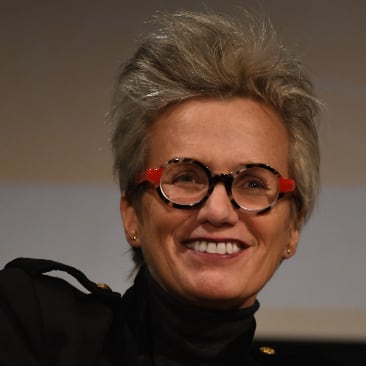Good nutrition is one of the most powerful yet underused tools in medicine. By improving the quality of food in hospitals, schools, and homes—and by training doctors to integrate nutrition into care—we can prevent disease, support recovery, and promote planetary health.

Earlier doctors strongly guided patients on food choices, but today nutrition feels missing in healthcare—why this silence and its impact?
With time, medicine has become more specialized and technology-driven, and nutrition has lost its place in the center of clinical care. Today, most medical schools only offer minimal training in nutrition. As a result, many doctors feel unprepared to talk to patients about food, even though poor diet is now the leading cause of death worldwide. This silence has serious consequences. Without addressing food, we are missing one of the most powerful tools we have to prevent and treat disease.
How can physicians practically integrate nutrition into daily patient care?
The first step is equipping physicians with the right knowledge and tools. They do not need to be nutrition experts, but they should feel confident to ask basic questions and offer simple, science-based advice. For example, they can ask patients to eat at least five portions of fruit and vegetables every day (600 grams) or how often they eat legumes. PAN offers free, accredited nutrition training and resources specifically tailored for clinical settings. Whether it's asking about a patient's diet, referring them to a dietitian, or sharing practical resources, even small steps can make a difference. When we treat food as part of routine care, not as a separate issue, we can create space for better outcomes.
How does PAN adapt its work to different regions and dietary cultures?
We work closely with our national offices, local partners, and healthcare professionals to ensure our resources are relevant in different cultural and dietary contexts. While our focus is always on promoting whole-food, plant-rich diets, the foods and flavors that bring them to life vary widely across regions. We therefore aim to support health professionals to apply nutritional guidance in a way that respects local traditions and food systems, whether that means emphasizing pulses and grains in India or seasonal vegetables and legumes in Europe or South Africa.
What role can collaborations between doctors, policymakers, and educators play in making nutrition a core part of healthcare again?
Collaboration is key when we talk about transforming healthcare and saving lives. Doctors can lead by integrating nutrition into patient care and demanding better training. Policymakers can support this work through curriculum reform, updated dietary guidelines, and stronger food policies. Educators play a vital role by ensuring that future healthcare professionals are prepared to address nutrition in practice. At PAN, we bring these groups together to drive change across the system. Only by working in partnership can we make nutrition a standard part of healthcare again, helping to improve health outcomes and support planetary well-being.
What future role will nutrition play in preventive and therapeutic medicine?
We believe nutrition needs to become a central pillar of both prevention and treatment. As chronic diseases continue to rise and health systems come under pressure, food will be increasingly recognized as one of the most cost-effective tools in medicine. This shift is already underway, with more focus on lifestyle medicine, culinary medicine, and hospital food reform. Nutrition has the power to address root causes of illness, not just symptoms, and its role in medical care will only grow stronger in the years to come.
What are the main barriers doctors face in using nutrition as therapy?
One of the major challenges is the lack of nutrition training in medical education. Many doctors leave university without the skills or confidence to apply nutrition in practice. Furthermore, there is a lot of misinformation out in the digital world. Time pressure is another factor, as many physicians feel they cannot address food within short consultations. In many settings, doctors have as little as 10 minutes to formulate a diagnosis and prescribe a therapy or refer a patient. In some settings, it is also believed that nutrition counseling is not the role of a doctor. At a system level, poor incentives and the influence of the food industry add to the challenge. PAN is working to remove these barriers through education, advocacy, and support for practical implementation in healthcare.
With initiatives like Healthy Hospital Food and Culinary Medicine Kitchens, how is PAN International turning its vision into real-world impact across different countries?
PAN International, founded in Germany in 2016, is a fast-growing global medical non-profit committed to transforming healthcare and medical education by promoting evidence-based nutritional practices for personal and planetary health. Young international doctors and medical students founded PAN with the vision of enhancing medical education by incorporating more nutritional training into the curriculum.
PAN aims to fight the growing problems of obesity and diseases like diabetes, heart disease, and cancer by encouraging healthy eating habits that can help prevent and treat these long-term health issues. PAN empowers doctors, nutritionists, and healthcare professionals to drive positive dietary change and support the transition to a healthy and climate-friendly food system. PAN International is an accredited observer to the UNFCCC and a scientific partner of the EAT-Lancet Commission, amplifying the crucial medical voice in societal discussions.
Our initiatives—such as Healthy Hospital Food, PANCO (a digital international community platform for learning and networking), PAN Power Kids (a healthy cooking workshop and edutainment experience for children), and the expansion of Culinary Medicine Kitchens at medical campuses, hospitals, and community settings—are designed to strengthen nutritional knowledge and promote better health outcomes worldwide.
PAN offices in 10 countries carry out these projects with support from a growing network of private and institutional donors.
Empower your business. Get practical tips, market insights, and growth strategies delivered to your inbox
By continuing you agree to our Privacy Policy & Terms & Conditions
